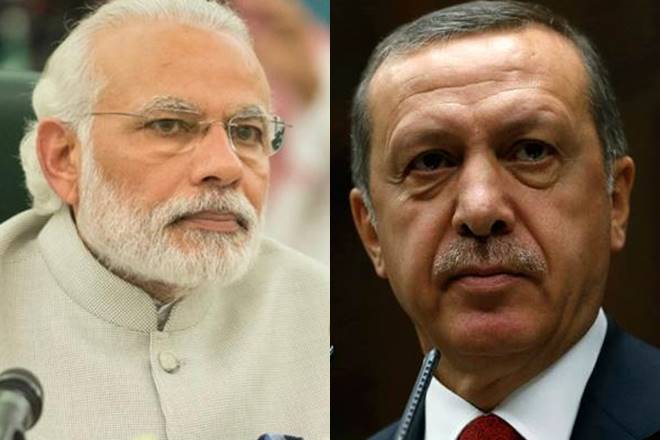Even as Syria has become the centre of global attention with the ongoing Turkish invasion into North-east Syria whereby it is trying to overwhelm the Kurdish fighters and create a “safe zone” for resettlement of Syrian refugees, India has issued a strong statement against the Turkish military action. Turkey’s incursion has the potential of creating a power vacuum in Syria that could lead to the IS getting a chance to regroup itself and stage a massive resurgence. With the imminent risk of massive prison breaks and IS fighters enjoying a free run, the situation in Syria could turn rather volatile all over again.
India has slammed Turkey over the military action and has stated that its actions could undermine stability in the region and the fight against terrorism. A Ministry of External Affairs (MEA) statement read, “We are deeply concerned at the unilateral military offensive by Turkey in north-east Syria.” India has also voiced concern about how Ankara’s actions could end up causing humanitarian and civilian distress in Syria. In fact, taking a strong stand, India has asked Turkey to exercise restraint and respect the sovereignty and territorial integrity of Syria. India has also called for peaceful settlement of all issues through “dialogue and discussion”.
India’s statement on the Turkish invasion is a diplomatically sharp move which ought to be seen in the light of the recent UNGA session during which Turkey, an all weather ally of Pakistan, had taken a rather objectionable stance on the issue of Kashmir.
Turkish President Erdogan had raised the Kashmir issue in support of Pakistan’s attempts to internationalise the issue, during his UNGA speech. At a time when the entire community of nations rightly agreed that abrogation of Article 370 is India’s internal issue, Erdogan had said, “Despite the resolutions adopted, Kashmir is still besieged and eight million people are stuck in Kashmir.”
He had also gone on to criticise the international community for not paying sufficient attention to the issue of Kashmir. This diplomatic offensive by Turkey had come as a sudden and unwarranted attack on India, especially at a time when Pakistan’s bizarre accusations against India concerning Kashmir failed to resonate with the international community. It is, for this reason, it was questioned as to why India did not deal with Turkey in the same coin.
India had then reacted in a subtle yet effective manner. India had resorted to quiet diplomacy as far as Turkey’s objectionable stance on Kashmir was concerned. PM Modi had met the Armenia PM Nikol Pashinyan and Cyprus President Nicos Anastasiades on the sidelines of the 74th UN General Assembly. Both the countries have been wronged by Turkey in the past. Armenia shares a long history of strained relations with Turkey and Armenians still accuse Turkey of having committed an inhuman massacre of the Armenian population in the early twentieth century. Cyprus, on the other hand, was violently partitioned by Turkey in 1974, after an invasion, which ultimately led to the Turkish occupation of a major part of Cyprus by the end of the invasion.
With PM Modi meeting the top political leadership of both these countries with whom Turkey shares an acrimonious past and not a really healthy relationship even in the present. This move was seen a soft signal that while India had started with quiet diplomacy but it could easily translate into a more forceful one. With the Ministry of External Affairs issuing a strong statement against the Turkish incursion into North-east Syria, which has drawn sharp reactions from around the world, India has also come out with a strong statement condemning the violent move by Turkey’s extremist Erdogan regime. The latest statement by the External Affairs Ministry comes as a turning point after which India’s diplomatic policy vis-a-vis Turkey can no longer be described as subtle and quiet but has really become far more unequivocal, articulated and pronounced.
